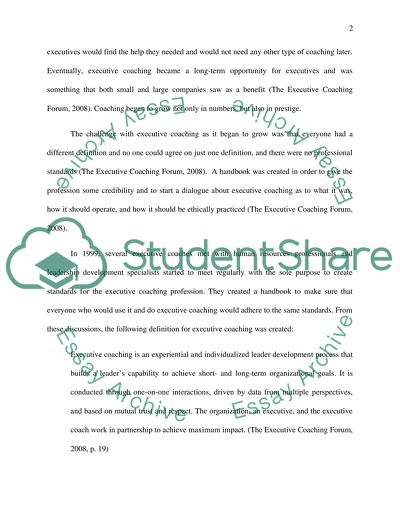Cite this document
(“The Effectiveness of Executive Coaching Research Paper”, n.d.)
Retrieved from https://studentshare.org/psychology/1396080-the-effectiveness-of-executive-coaching
Retrieved from https://studentshare.org/psychology/1396080-the-effectiveness-of-executive-coaching
(The Effectiveness of Executive Coaching Research Paper)
https://studentshare.org/psychology/1396080-the-effectiveness-of-executive-coaching.
https://studentshare.org/psychology/1396080-the-effectiveness-of-executive-coaching.
“The Effectiveness of Executive Coaching Research Paper”, n.d. https://studentshare.org/psychology/1396080-the-effectiveness-of-executive-coaching.


